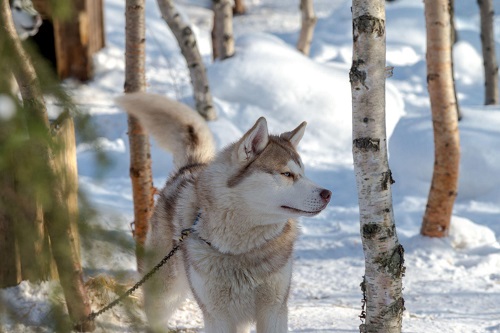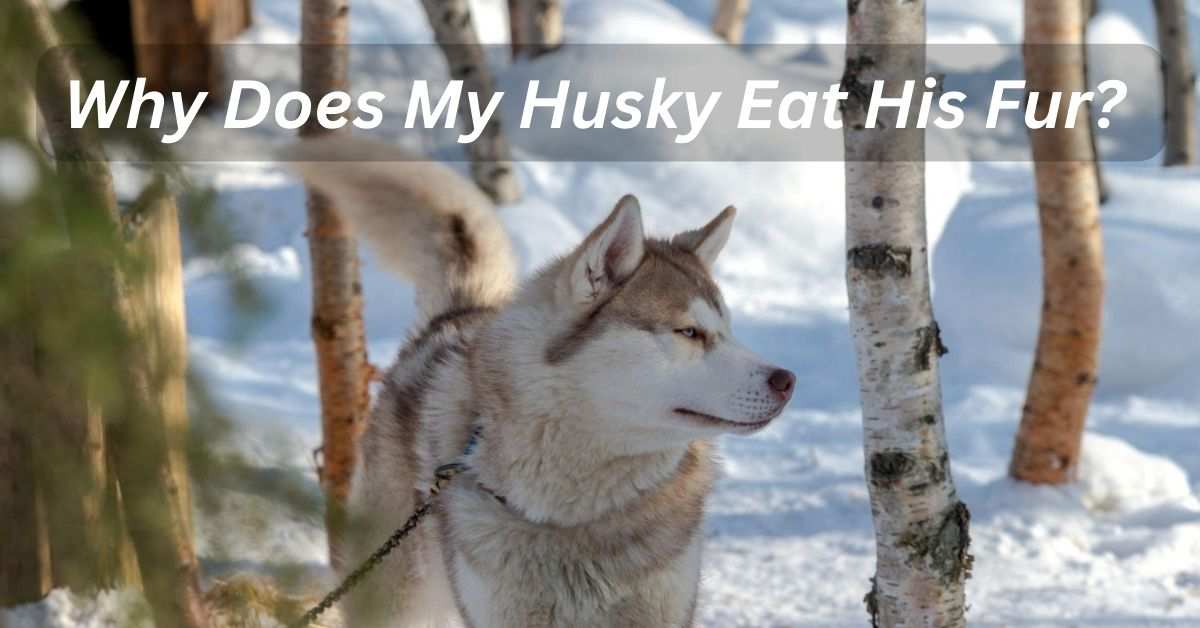Huskies are known for their striking appearance and wolf-like demeanor, but sometimes they exhibit a rather peculiar habit of eating their own fur. So Why Does My Husky Eat His Fur?
A number of factors may contribute to this behavior, ranging from their innate instincts to potential health concerns. Our discussion will also cover how to prevent fur-eating and when it becomes necessary to seek professional help.
Understanding the Behavior
The Instinctual Nature of Huskies
Huskies are a breed with a strong connection to their ancestral roots. Their fur-eating behavior can be traced back to their wild ancestors who would consume fur and feathers as a source of nutrients. This instinctual behavior can still manifest in domesticated Huskies.
Common Reasons
Nutritional Deficiencies
Huskies, like any other breed, require a well-balanced diet rich in essential nutrients. If they lack certain vitamins or minerals, they might resort to fur-eating as a way to compensate for these deficiencies. We’ll explore the dietary factors that could be driving this behavior.
Boredom and Anxiety
Huskies are energetic and intelligent dogs. When they don’t receive adequate mental and physical stimulation, they can become bored and anxious. Fur-eating can be a result of this pent-up energy or anxiety. Discover how you can keep your Husky engaged and content.
Seasonal Shedding
Huskies have a thick double coat that undergoes shedding, especially during seasonal changes. This natural process can lead to excessive fur on their bodies, tempting them to nibble on it. We’ll discuss strategies to manage this shedding and reduce fur ingestion.
Health Concerns
When Fur-Eating Becomes a Problem
While some fur-eating is considered normal for Huskies, excessive or compulsive fur-eating can lead to health problems. Learn how to distinguish between normal behavior and when it’s time to take action.
Potential Health Risks
Excessive fur ingestion can lead to digestive issues or even blockages in your Husky’s digestive tract. We’ll outline the potential health risks associated with fur-eating and why it’s essential to address this behavior promptly.
Preventing Fur Eating
Providing a Balanced Diet
Ensuring your Husky receives a well-rounded diet is crucial in preventing fur-eating due to nutritional deficiencies. We’ll provide guidance on the right nutrients to include in their diet.
Mental and Physical Stimulation
Keeping your Husky mentally and physically active can go a long way in curbing fur-eating tendencies. We’ll share ideas for engaging activities that will keep your furry friend occupied.
Grooming and Fur Maintenance
Regular grooming and fur maintenance can help reduce shedding and minimize the temptation for your Husky to eat their fur. We’ll discuss grooming practices and tips to follow.
Seeking Professional Help

Consulting a Veterinarian
If your Husky’s fur-eating persists or intensifies, it’s time to consult a veterinarian. They can rule out underlying health issues and recommend suitable treatments or dietary changes.
Behavioral Training and Experts
Behavioral issues might require the expertise of a professional dog trainer or behaviorist. We’ll explore when it’s appropriate to seek help from these specialists and what you can expect from their interventions.
Conclusion
Understanding Why Does My Husky Eat His Fur is the first step in addressing this behavior. Whether it’s due to their instinctual nature, nutritional deficiencies, boredom, or anxiety, there are ways to manage and prevent fur-eating.
Remember, a balanced diet, mental and physical stimulation, and proper grooming can make a significant difference. However, if the problem persists, seeking guidance from a veterinarian or behavioral expert is always a wise choice.
FAQs (Frequently Asked Questions)
While some fur-eating is considered normal, excessive fur consumption can be a cause for concern. It’s essential to monitor your Husky’s behavior and consult a veterinarian if needed.
Yes, nutritional deficiencies can prompt Huskies to eat their fur as a way to compensate for lacking essential nutrients. Providing a well-balanced diet is crucial in preventing this behavior.
Signs of a health problem related to fur-eating can include vomiting, diarrhea, or abdominal discomfort. If you notice these symptoms, consult a veterinarian promptly.
